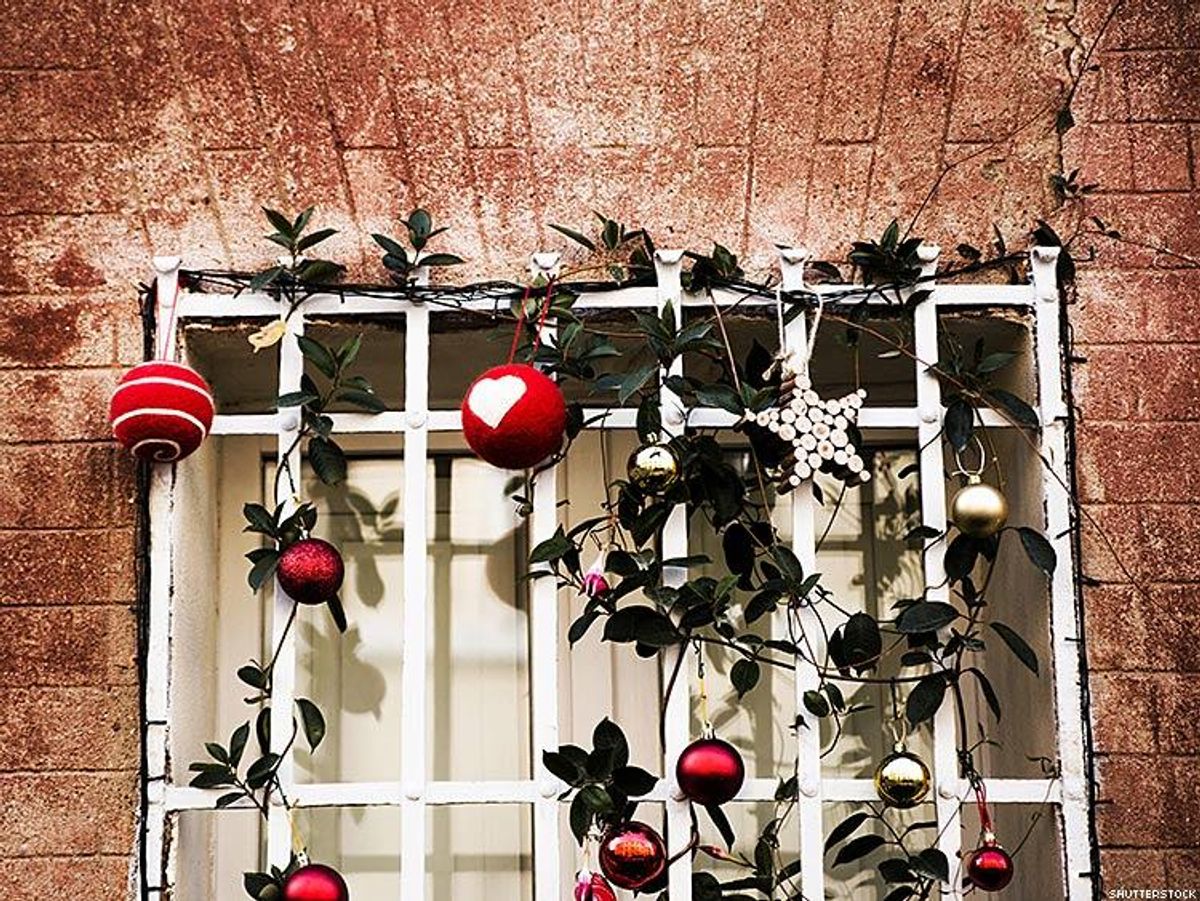
Despite the anti-LGBT hate spouted by right-wing self-proclaimed Christians, this holiday-loving guy believes the reason for the season makes room for queer people too.
December 23 2015 4:31 AM EST
December 23 2015 7:49 AM EST
By continuing to use our site, you agree to our Private Policy and Terms of Use.

Despite the anti-LGBT hate spouted by right-wing self-proclaimed Christians, this holiday-loving guy believes the reason for the season makes room for queer people too.
I love Christmas. I always have. Blame growing up in Colorado Springs at the base of Pikes Peak, close enough to the majestic Rocky Mountains that I could literally spit on them. Blame the fresh snow that fell each Christmas morning, so reliably that I took my annual "white Christmas" for granted. Blame my hope and trust in the kindness and generosity of humankind that is the topic of so much discussion this time of year.
Given my love of this holiday and the deeply religious nature of my childhood home, I grew up with idealistic views about what Christmas could and should be. Even as my familial relationships changed when I began to express my gender nonconformity and started dating people who my family didn't welcome, I always expected that the love and acceptance of Christmas would stay the same.
Sadly, it didn't. I sat through many an uncomfortable Christmas where my gifts were thinly veiled warnings about my "lifestyle" choices. My aunt gave me feminine clothes and dresses, while others wrapped up pointed books about how to avoid the "liberal" arguments and temptations of popular culture. But my favorites were the gift cards to seminars at Focus on the Family.
So as an LGBT person and as a queer trans man in particular, I've long felt a creeping dread that I would eventually have no choice but to give up on Christmas. I've seen countless numbers of my LGBT brethren recoil at the religious focus of this particular holiday. The holiday's language of salvation has so often been translated to "my kind" as eternal damnation that the knee-jerk reaction I get when inviting queer friends to a Christmas party makes sense.
But over the past decade, I've decided to reclaim Christmas. It all started a few months after my grandmother's death from breast cancer in September 2005. Her death rocked my family and sent a fault line down the middle of my parents' marriage that was never repaired. Combined with my parents' divorce, my two siblings and I were left floating through grief and disbelief, trying to grapple with such an immense loss.
That somber December, I was returning home from a semester abroad in Costa Rica, where I let my gender expression take on its most masculine presentation before I came out as transgender in 2010. I cut my hair into a mohawk, which, although pleasing to me in a far-off country, was not received well by my parents. I was forced to shave my head and spent the holiday being ostracized by my entire family -- except my sister. Because our house was a difficult place to be, she and I spent many days at the movies over that winter break.
While our impromptu holiday filmfest provided a much-needed sanctuary from the tension at home, one film cut to heart of why my family's rejection stung so badly. The Family Stone follows a family spending their last holiday with Diane Keaton, the beloved matriarch, who is dying from an aggressive breast cancer. One of the four children in the film, Thad, is deaf and gay. During a particularly heated scene where a guest implies that no parent would "actually wish for gay children," Keaton's character does something that still brings me to tears. After the outraged guest leaves the table, the matriarch turns to her son and signs, while also saying aloud, "I love you. And you are more normal than any asshole sitting at this table. OK?"
I sobbed my way through the rest of the movie and left the theater painfully aware of how desperately I wanted my family to say this very thing to me. But living through that Christmas, with my shaved head and my sister the only one who was willing to speak to me, helped me finally understand that there was something better out there for me.
So since 2005, I've crafted my own kind of Christmas, with my own kind of family. Many I've spent with my partners, decorating apartment-size Christmas trees, making delicious meals, playing Scrabble, and sometimes exchanging small, thoughtful gifts. Some I've spent with large groups of "LGBT orphans," friends and acquaintances working to embrace the spirit of the holiday without returning "home." And this Christmas, I'll be staying here in New York City, volunteering at Services and Advocacy for LGBT Elders (SAGE), serving Christmas dinner to LGBT elders and joining them in their community.
It may not be the Normal Rockwell scene I had expected since childhood, but each Christmas has been overflowing with all the love and warmth and kindness I expect of the season.
I still love Christmas. For me, the holiday has always been about the universal principles of goodness, unconditional love, and seeing people's best selves emerge from beneath the pain and misery the world enacts on us all. For us LGBT people, it's a time to celebrate our resilience -- marking off another year that we have conquered the forces that seek to keep us hidden in the shadows.
So to my LGBT friends and family, I urge you to turn on the twinkling lights and deck the halls with your most fabulous boughs of holly or feather boas or whatever makes your home feel warm and welcoming and yours. Because you deserve to have a Merry Christmas, and the happiest holidays yet. And please know that I love you, and you are more normal than any asshole sitting at that table. OK?
